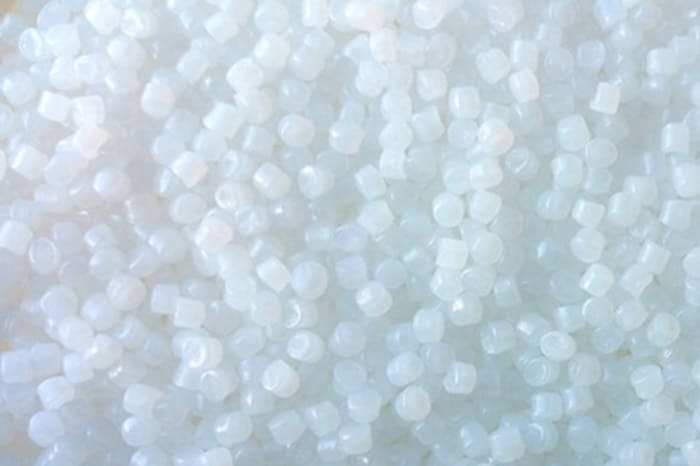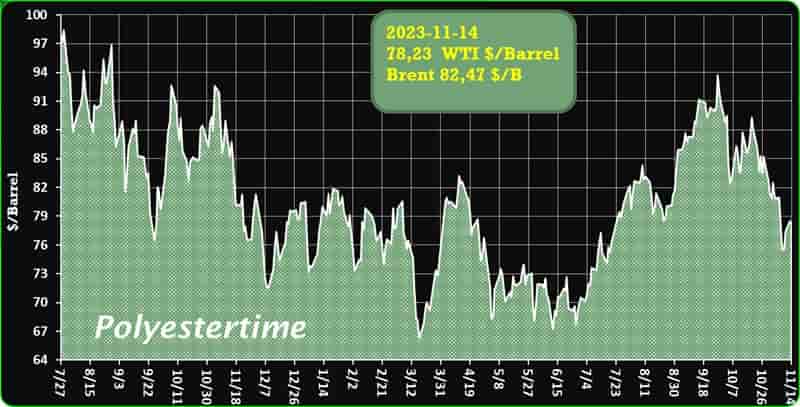Japanese materials maker AGC and energy group Idemitsu Kosan have made strides toward mass producing the main ingredient in all-solid-state batteries, which are seen as a next-generation power source for electric vehicles.
All-solid-state batteries contain solid electrolytes instead of the liquid ones found in lithium-ion batteries.
They have been hailed as a safer, fast-charging alternative for powering EVs, but production at significant levels remains years away. Solid-state batteries
Efforts to build a supply chain for them are moving ahead in Japan, which leads in patent applications for all-solid-state battery technology, followed closely by China.
AGC, the world’s leading automotive glass producer, has built a test facility for solid electrolytes inside the company’s Yokohama Technical Center.
Research is underway on combining up to 10 ingredients and melting them at below 1,000 C to produce a dark molten material. When it cools, the liquid solidifies into a yellow sulfide electrolyte. Solid-state batteries
“Although it’s a late start, the new technology gives us good prospect of coming from behind,” said Naoki Okahata, a senior manager at AGC. The company announced its entry into sulfide electrolytes in September.
Toyota Motor is developing an all-solid-state battery that can be recharged in under 10 minutes and provide 1,200 kilometers per charge, more than double the range of today’s EVs. Toyota aims to roll out cars with all-solid-state batteries in 2027 or 2028.
Research and development into all-solid-state batteries in Japan goes back two or three decades, with Idemitsu among the pioneers. AGC’s program is less than four years old.
But since September, “the reception has been significant, and we’ve received inquiries from manufacturers around the world,” said an AGC representative.
Ions move more easily between electrodes through solid sulfide electrolytes than with liquid ones. Sulfide solid-state batteries are also resistant to temperature changes, allowing for reduced charge times, extended EV ranges and a smaller battery.
But sulfides are chemically unstable. Solid-state batteries
To work in EVs, they need to overcome hurdles in durability and high production costs. One of the biggest challenges has been ensuring the chemicals are evenly combined, which has been difficult to do with conventional methods.
This is where AGC stepped in, with over 100 years of glassmaking know-how in melting together materials to produce a homogenous solid.
The company developed its own technology for melting together lithium sulfide and other materials to produce electrolytes of high consistency. The process speeds up the chemical reaction and shortens production time to less than a tenth of conventional methods.
“For automotive applications requiring a large amount of electrolyte, this ensures lower production costs,” Okahata said.
The cost to produce all-solid-state batteries can range from four to 25 times that of lithium-ion batteries, according to the Japan Science and Technology Agency.
Electrolytes account for 76% of materials costs. Lowering mass production costs will be key to bringing solid-state EV batteries into the mainstream. Solid-state batteries
AGC’s process can also incorporate raw materials that are difficult to mix, which opens up a wider variety of compositions. Since lithium is relatively scarce, AGC looks to use material recycled from used batteries.
AGC will build a large pilot electrolyte facility by 2025, with the goal of bringing the product to market between 2027 and 2028. The company has set an annual revenue target of 10 billion yen ($66 million) by 2030 for the business.
Idemitsu, which ranks second in the world in patent applications for solid sulfide electrolytes, entered into a partnership with Toyota in October to mass produce all-solid-state batteries.
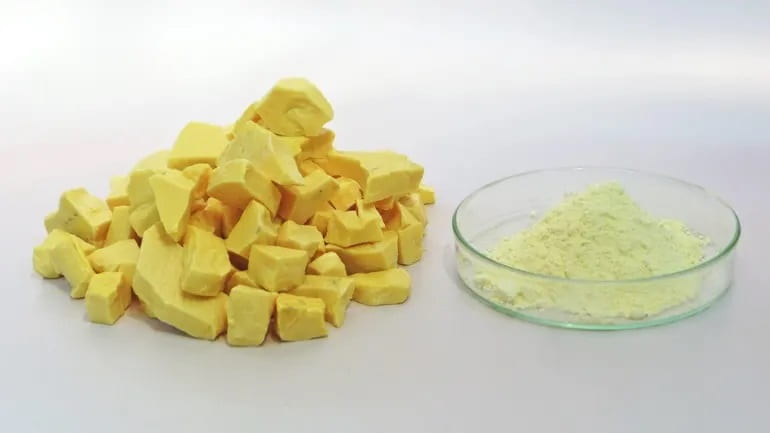
Purecycle sends first shipments of recycled resin
Florida-based polypropylene (rPP) recycler Purecycle has sent out its first shipments of recycled resin after a force majeure and months of delay during construction.
Purecycle, which has built its first recycling plant in Ironton, Ohio, says its unique solvent-based recycling technology allows the company to create rPP that has properties closer to virgin material.
Purecycle said they have recycled 409,000 lbs, or 204.5t, of used polypropylene so far at its Ironton plant. The company has sent its first shipments of rPP to Formerra and Milliken, two US-based polymer producers.
Purecycle aims to increase its production to 4.45mn lbs of input capacity per year by 31 December. Solid-state batteries
“Ironton is the first facility of its kind and as expected, we are working through many challenges in getting the facility to run on a continuous basis,” Chief executive Dustin Olson said. “We have identified a set of reliability and operational improvements that are expected to be addressed during a two-week outage in November, including the installation of an automatic screen changer on the final product extruder, which has impacted continuous run times.”
The company noted that most of its production issues have been as a result of mechanical issues that are part of an “operational learning curve”.
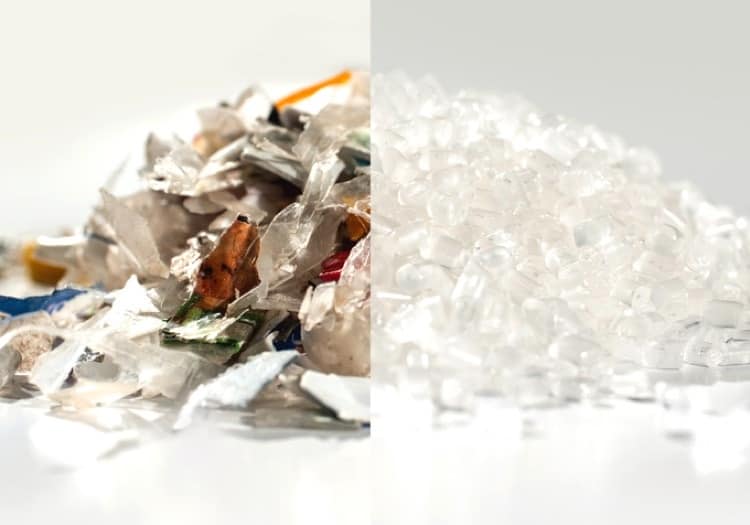
New oil from plastic that pollutes the sea
Sea plastic is a huge environmental problem, but it can also be a valuable resource. Aenea, a research institute, has developed a way to transform more than 90% of the plastic recovered from the sea into new oil, using a chemical process called pyrolysis. Pyrolysis breaks down the plastic by heating it to over 400 degrees without oxygen.
The process also uses another waste material, the ash from coal plants, as a catalyst.
The new oil obtained from pyrolysis is very rich in hydrocarbons, which can be used to make fuels, high quality chemicals, new plastics, paints, solvents and many other products. Solid-state batteries
The process is cleaner and more efficient than using the original oil.
The American Chemical Society has certified the results of Aenea’s technology and published them in its online journal ACS Sustainable Chemistry & Engineering.
The challenge of reducing plastic pollution Plastic pollution is a global threat to the oceans and marine life.
Every year, the world produces 400 million tons of plastic waste, and at least 10 million tons end up in the oceans, forming huge floating islands of plastic debris.
These islands interfere with navigation and are only the tip of the iceberg of the damage caused by plastic. Solid-state batteries
Plastic takes more than 600 years to degrade naturally, and in the sea it breaks into smaller pieces, called microplastics, that attract and absorb other pollutants, such as pesticides, fertilizers, industrial waste, detergents and cosmetics.
These microplastics then enter the food chain, affecting fish, mammals, birds and humans. The effects of plastic on health, nutrition, metabolism and hormones are unknown and worrying.
A local and circular solution The current methods of recycling and disposing of sea plastic are mainly based on mechanical processes, which have many limitations and difficulties, especially when the plastic is mixed with other materials. Solid-state batteries
Catalytic pyrolysis, on the other hand, offers a more effective and sustainable solution, as it can handle large quantities of heterogeneous and unsorted waste.
Moreover, pyrolysis can be done locally, using small plants installed in ports, which could even produce fuel for boats from the plastic collected at sea, suggests Riccardo Tuffi, the Aenea researcher who carried out the research with his colleagues Lorenzo Cafiero and Doina De Angelis.
This would create a circular and zero-kilometer recycling system, turning a problem into an opportunity.
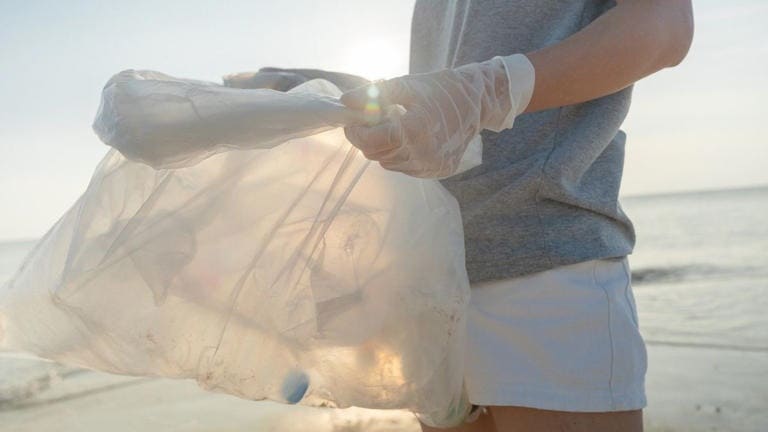
Bio-based Leather Alternative for Auto Interiors Attracts Investment
NFW, a startup based in Peoria, IL, that produces non-petroleum-based leather alternatives for car interiors, has attracted investment from Asahi Kasei. The Japanese company and its US-based affiliate, Sage Automotive Interiors Inc., said it will work with NFW in a strategic partnership enabling another major step to support global automotive OEMs in reducing the environmental burden of automobiles.
NFW was founded in 2015 and has developed a platform capable of producing precision-engineered leather, foam, and textiles without using animal- or petrochemicals-based materials. Solid-state batteries
The company’s patented leather alternative, called Mirum, is certified by the US Department of Agriculture as having 100% bio-based content, and is made from natural rubber, fibers, plant oils, pigments, and minerals. The material’s durability and quality make it a suitable replacement for traditional animal-based or synthetic leather products without the use of polyurethane or other coatings.
A yen for sustainable growth
Sage Automotive is engaged in the development, manufacture, and sale of innovative functional materials used in automobile interiors globally. Since its acquisition by Asahi Kasei in 2018, Sage has been strengthening its business activities in Europe and China through mergers and acquisitions, parallel to expanding its lineup of growth-potential materials such as suede and synthetic leather. Solid-state batteries
As one of the leading global suppliers in the car seat fabric market, Sage has a strong presence among automakers and suppliers.
Dirk Pieper, chairman of the Sage board of directors and lead executive for the development and growth of Asahi Kasei’s overall automotive product offering, stated: “The cooperation with NFW will enable Asahi Kasei and Sage to assist global automakers in reducing the environmental burden of their cars. By jointly developing and manufacturing a non-petroleum-based and fully circular leather alternative, the Asahi Kasei Group takes a leading position in revolutionizing the market for car interior materials.”
Asahi Kasei earmarks $100 million for sustainability-minded startups
The cooperation with NFW is the first project within Asahi Kasei’s Care for Earth investment framework announced in April 2023. Solid-state batteries
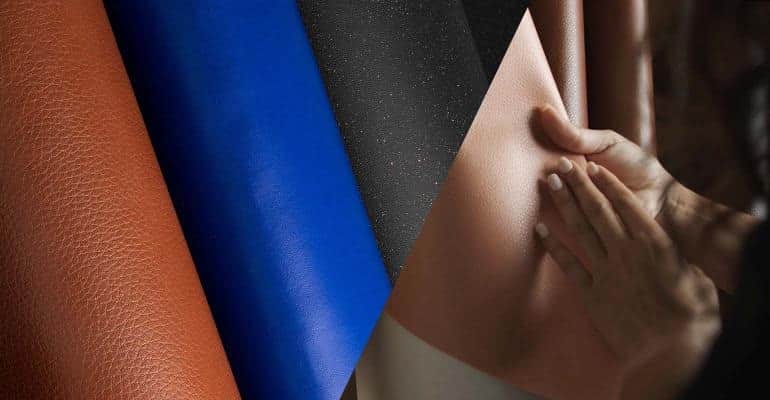
Novozymes launches Quara LowP
As the world seeks sustainable alternatives to traditional fuels, renewable diesel and SAF production have taken center stage. By 2030, vegetable oils are projected to account for over 40 percent of global feedstock used in renewable diesel and SAF production. However, producers have long grappled with challenges related to feedstock availability, pricing fluctuations, and the ever-increasing market demand.
To address these pressing issues, Novozymes has leveraged its extensive experience in enzymatic degumming, which has resulted in Quara LowP, an innovative solution that gives customers flexibility to process mixed feedstocks without negatively impacting their bottom line. Solid-state batteries
“This innovation is a testament to our commitment to sustainable solutions for the renewable diesel and SAF industry. Quara LowP offers producers the flexibility to process blends of feedstocks resulting in increased efficiency, reduced operating costs, and lowered environmental impact. It is a great contribution to the industry and a reflection of Novozymes’ dedication to rethinking tomorrow,” said Hans Ole Klingenberg, VP of marketing, Agriculture & Industrial Biosolutions at Novozymes.
A sustainable solution for a growing demand
Quara LowP facilitates the efficient processing of HVO (Hydrotreated Vegetable Oil) and HEFA (Hydroprocessed Esters and Fatty Acids) feedstocks. By pretreating these feedstocks with Quara LowP, producers can achieve higher yields and significantly lower operational costs, all while reducing the environmental footprint of their operations.
This innovation holds profound significance for the HVO and SAF industry:
• Increased efficiency: HVO/HEFA feedstock producers now have a means to process blends of vegetable oils with other lipid feedstocks without compromising yield or incurring additional operating costs. Solid-state batteries
The current practice of overusing bleaching earth/bleaching clay to address contaminants in vegetable oils when blending with waste oils is a thing of the past. Quara LowP offers a more efficient and cost-effective solution.
• Economic benefits: With Quara LowP, producers can enjoy increased yields and lower operating costs, overcoming process inefficiencies.
• Environmental impact: The industry can benefit from a greener operation, with reduced waste handling hazards and lower water consumption, aligning with the global sustainability goals. Solid-state batteries

Republic Services and Blue Polymers to develop plastics recycling complex
The move is part of a JV established between the companies earlier this year.
Republic Services and Blue Polymers have broken ground on a new plastics recycling complex in Indianapolis, US.
The site encompasses a Republic ‘Polymer Center’ and a Blue advanced polymer production facility. Solid-state batteries
Both facilities are anticipated to be opened by the end of next year.
They are expected to promote the circularity of plastics and provide recycled materials for sustainable packaging and other applications.
The Indianapolis-based site will comprise two buildings with a combined area of approximately 286,000ft² and create roughly 125 permanent jobs for the local community.
Lauth Group has been selected for the development and construction of the project.
Republic recycling and sustainability vice-president Pete Keller said: “Through our Polymer Center network and Blue Polymers partnership, we’re helping customers achieve their ambitious recycled content goals by producing high-quality recycled plastics.
“As a leader in the environmental services industry and one of the nation’s largest recyclers, Republic Services is uniquely positioned to advance plastics circularity and the region’s circular economy while supporting Indianapolis’ vision for a more resilient future.”
Republic is establishing a national network of Polymer Centers alongside Blue Polymers’ production facilities via a joint venture (JV) established earlier this year.
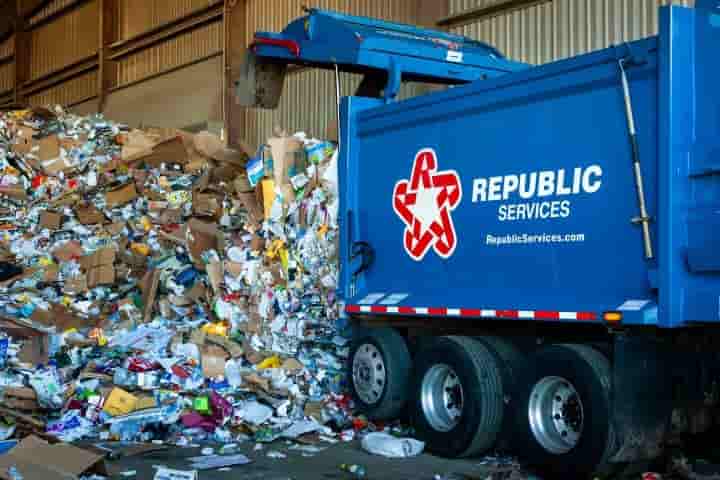
Polypropylene (PP) prices drift lower in Europe
This week, PP prices slipped in Europe. Solid-state batteries
An industry source in Europe informed a Polymerupdate team member, “A bearish pricing sentiment prevailed in the European PP market as demand weakened ahead of winter. A moderate rise witnessed in consumer activity over the last two months has ebbed considerably, with a large number of market participants procuring inventories prior to the onset of winter and making purchases on a need-based basis.”
The source added, “Prices further trended lower as sellers were keen on destocking their excess inventories ahead of the winter season typically marked by depressed demand sentiments.”
In the spot markets, PP injection moulding grade prices were assessed at the Euro 1125-1135/mt FD North West Europe mark, a decline of Euro (-30/mt). PP block copolymer grade prices were assessed at the Euro 1175-1185/mt FD Northwest Europe levels, week on week sharply lower by Euro (-40/mt).
In the contract markets, PP injection moulding grade prices were assessed at the Euro 1420-1425/mt FD NWE Germany and FD NWE France levels, both fallen by Euro (-20/mt) from the previous week. PP injection moulding grade prices were assessed at the Euro 1410 1415/mt FD NWE Italy levels, a drop of Euro (-20/mt) from last week. Meanwhile, PP injection moulding grade prices were assessed at the GBP 1235-1240/mt FD NWE UK levels, week on week down by GBP (-15/mt). Solid-state batteries
In the contract markets, PP block copolymer grade prices were assessed at the Euro 1500-1505/mt FD NWE Germany and FD NWE France levels, both lower by Euro (-20/mt) from last week. PP block copolymer grade prices were assessed at the Euro 1490-1495/mt FD NWE Italy levels, a drop of Euro (-20/mt) from the previous week. Meanwhile, PP block copolymer grade prices were assessed at the GBP 1305-1310/mt FD NWE UK levels, down GBP (-15/mt) from last week.
FCA Antwerp PP homopolymer prices were assessed at the Euro 1110-1140/mt levels, a week on week fall of Euro (-20/mt), while FCA Antwerp PP copolymer prices were assessed at the Euro 1160-1190/mt levels, a sharp week on week drop of Euro (-40/mt).
Upstream propylene spot prices on Thursday were assessed at the Euro 875-885/mt FD Northwest Europe levels, week on week rise of Euro (+15/mt). Solid-state batteries
